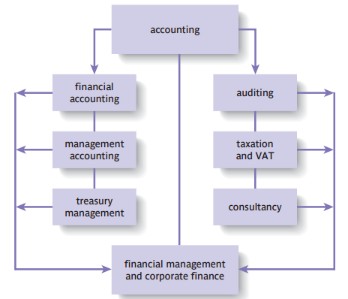Finance is omnipresent and is intimately associated with other functions in an organization. Finance is related to marketing in formulating credit and collection policies. Each aspect of marketing function – sales promotion, advertising, channels selection etc. – has a bearing on finance as well.
- In the purchase function, procurement cost, inventory carrying cost etc. are the financial aspects.
- In Production function also, finance plays an important role when decisions like make or buy, maintenance cost, transportation cost, acquisition & replacement of assets etc. Production function takes the greater part of capital investment in fixed assets which should pass through capital budgeting.
- As regards personnel function, decisions like over-time payment, incentive schemes, promotions, bonus schemes, retirement schemes, affect finance.
Each activity of an organization has to be financed. The thread of finance is woven into the fabric of the enterprise so well that it is difficult to identify the separate strands of finance.
Financial accounting is the function responsible in general for the reporting of financial information to the owners of a business, and specifically for preparation of the periodic external reporting of financial information, statutorily required, for shareholders. It also provides similar information as required for Government and other interested third parties, such as potential investors, employees, lenders, suppliers, customers, and financial analysts. Financial accounting is concerned with the three key financial statements: the balance sheet; income statement (or profit and loss account); cash flow statement. It assists in ensuring that financial statements are included in published reports and accounts in a way that provides ease of analysis and interpretation of company performance.
The role of financial accounting is therefore concerned with maintaining the scorecard for the entity. Financial accounting is concerned with the classification and recording of the monetary transactions of an entity in accordance with established accounting concepts, principles, accounting standards and legal requirements and their presentation, by means of income statements, balance sheets, and cash flow statements, during and at the end of an accounting period. Within most companies, the financial accounting role usually involves much more than the preparation of the three main financial statements.


